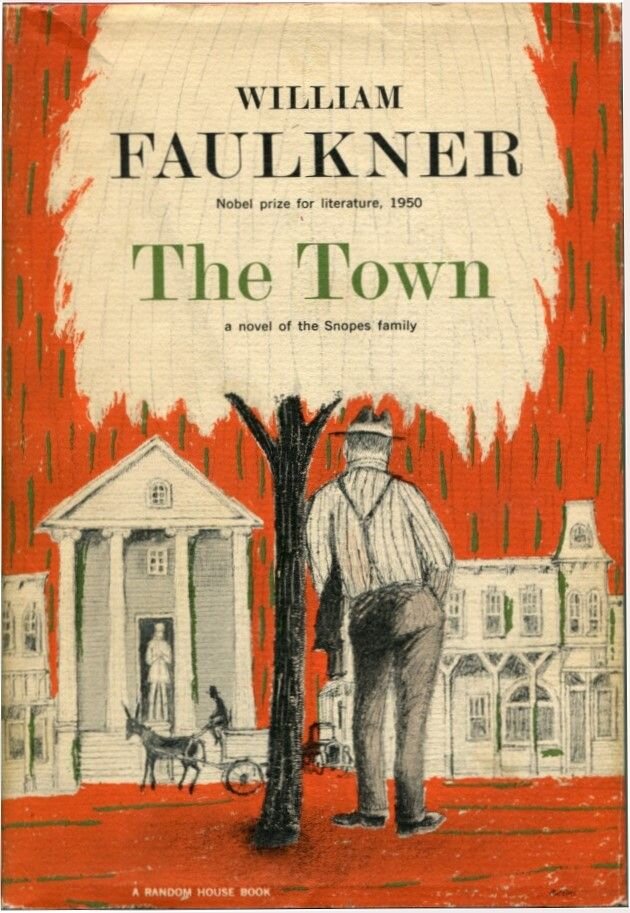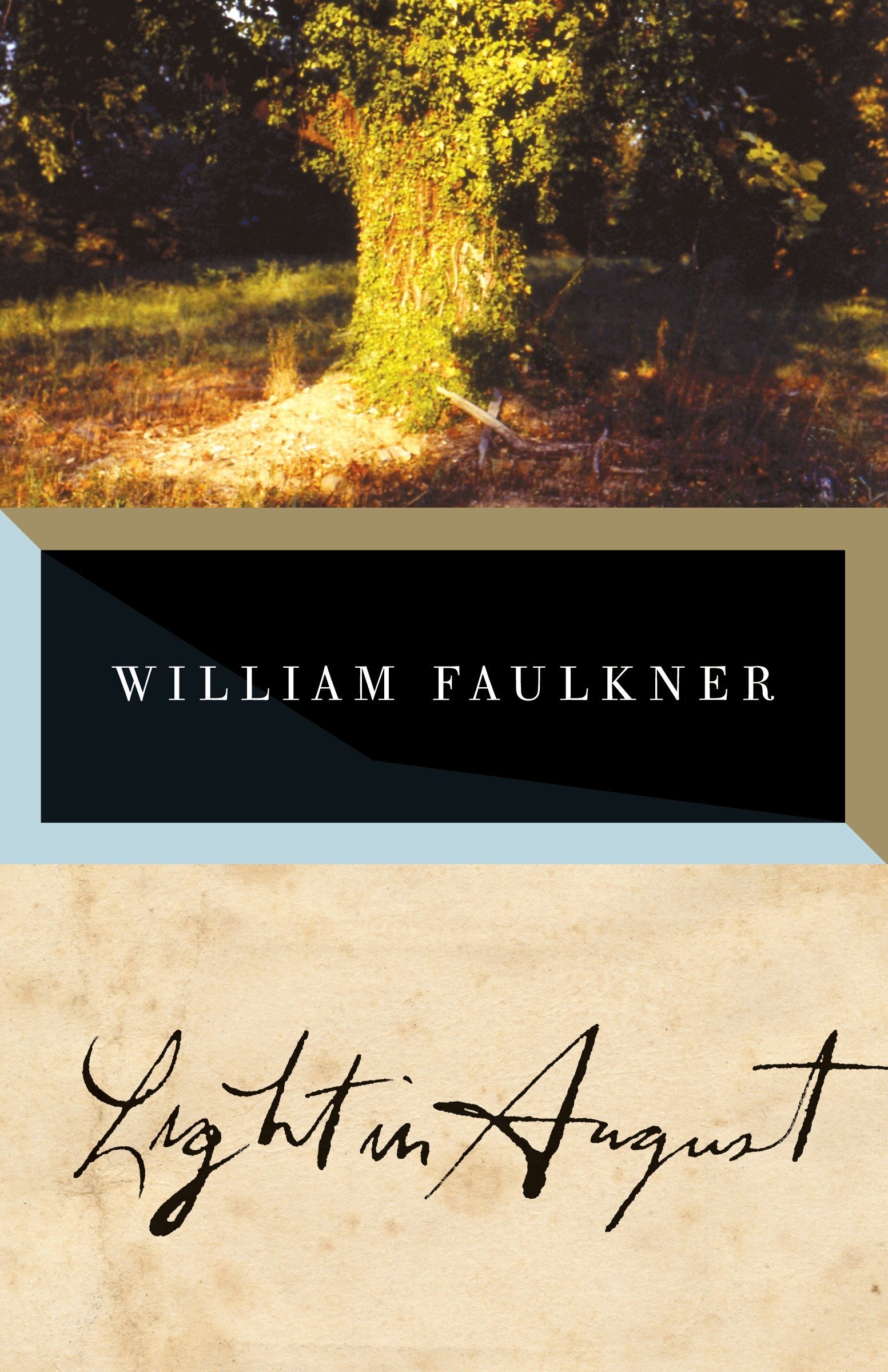FAULKNER'S FINEST MOMENT
OXFORD, MS — NOVEMBER 1950 — When the phone rang, the Nobel Laureate was outside lacing a field with lime. Fall was William Faulkner’s favorite season, when sweltering heat surrendered to pleasant evenings. He hadn't written much lately, preferring to farm, and now here was this phone, the noise that kept "all the people of this world from thinking about things they should remember." He came into the pantry, wiped his hands, and answered.
A Swedish journalist was calling from New York. He had won the Nobel Prize for Literature. Faulkner thanked the man but said he could not attend the ceremony in Stockholm. "I am a farmer down here and I can't get away."
He told no one about the award, just went back to his field. When the news leaked, friends found him determined not to go. "There just isn't enough gas left in the tank to go all that distance." A week later, while washing dishes on a hunting trip, a friend asked, "Bill, what would you do if that Swede ambassador came down here and handed you that money right now?"
"I'd tell him to just put it on that table over there and grab a dryin' rag and help out."
But pressured by his publisher, and by his teenage daughter who wanted to see Paris, Faulkner relented. At age 53, he had never given a speech, never worn a tuxedo. “The suit I use for funerals wouldn’t do to meet a king,” he said. So his publisher rented a tux and Faulkner, between bourbon binges, worked on his speech.
The Nobel was sweet revenge. For twenty-some years he had scratched out a living writing cutting-edge, stream-of-consciousness novels. All were set in a fictitious Mississippi county, and all sold poorly. By 1945, all the novels were out of print. In Europe, Sartre and other young writers avidly read Faulkner, marveling at his lyrical prose and conflicted characters. Yet in America, he complained, “I eke out a hack’s motion picture wages by winning second prize in a manufactured mystery story contest.”
American critics scoffed at Faulkner’s Nobel. A Mississippi paper called Faulkner “a propagandist of degradation.” The New York Times thought his benighted novels were un-American. “Incest and rape are perhaps widespread distractions in the Jefferson, Mississippi of Faulkner, but not elsewhere in the United States.”
Given his Gothic gloom, the last thing expected from Faulkner was optimism. But since Hiroshima, he had worried about the human spirit. Battling his intense shyness, he mustered his hopes.
After weeks of heavy drinking, Faulkner arrived in Stockholm. He was a wreck. The night of the ceremony, he paced the embassy library, saying, “I can’t stand this.” Diplomats alarmed by his initial refusal now found Faulkner refusing even to shave. Would he embarrass America? An aide calmed Faulkner, then adjusted his tux and oil-stained trench coat. The ceremony was minutes away.
In December 1950, the Cold War haunted the future. The Korean War threatened to spark a third World War. The Atomic Scientists’ “Doomsday Clock” stood at three minutes to midnight. Against the shadow of the mushroom cloud, one writer stood alone at a podium. Standing just 5’5,” speaking a soft Southern drawl, Faulkner could barely be heard.
“I feel that this award was not made to me as a man, but to my work – a life’s work in the agony and sweat of the human spirit. . .”
Then he got serious.
“There are no longer problems of the human spirit. There is only the question: When will I be blown up? Because of this, the young man or woman writing today has forgotten the problems of the human heart in conflict with itself.”
The writer, Faulkner said, must surmount such fear, “leaving no room in his workshop for anything but the old verities and truths of the heart, the old universal truths lacking which any story is ephemeral and doomed – love and honor and pity and pride and compassion and sacrifice.”
Faulkner’s messy life would soon get messier — more binges, shock therapy, imbroglios over Civil Rights. Yet in Stockholm, he lit a candle.
“It is easy enough to say that man is immortal simply because he will endure,” Faulkner said. But he refused to settle for this. “I believe man will not merely endure; he will prevail.” Man is immortal “because he has a soul, a spirit capable of compassion and sacrifice and endurance. The poet’s, the writer’s duty is to write about these things. It is his privilege to help man endure by lifting his heart, by reminding him of the courage and honor and hope and pride and compassion and pity and sacrifice which have been the glory of his past.”
Stirring words, but had the audience hear them? Standing far from the microphone, nervously racing through, Faulkner drew just light applause, but when the speech appeared in newspapers, it got worldwide attention. By then the Nobel laureate was packing for Paris.
Faulkner and his daughter spent five days in the city where he had lived in the 1920s, then headed for Oxford to enjoy a parade and a fish fry.
That left only “that damned money,” his prize of $30,171. Feeling he had not earned it, he gave $500 to a music scholarship at Ole Miss and $3,000 to a black high school principal. The rest he put in a trust. It was a fitting ending. Trust – in humanity and in the power of stories – was the essence of Faulkner’s finest moment.


















